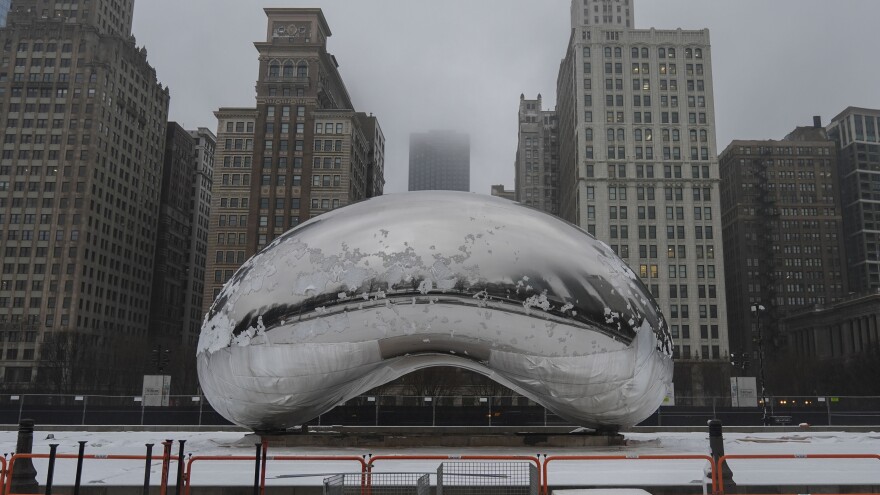The Arctic air gripping much of the U.S. put Tesla drivers in Chicago into a pickle on Monday. Many of the cars sat in long lines at Supercharger stations, their owners saying the cold sapped the electric vehicles' normal ability to charge — and keep a charge.
In some cases, tow trucks were called to move the cars, in scenes that were relayed by local TV news. The Tesla owners' plight became an emblem of the misery extreme cold is inflicting on wide sections of the U.S. (more on that below).
Tesla owners line up, hoping to get a charge
"I've been here for over five hours at this point and I still have not gotten to charge my car," Tesla driver Brandon Welbourne told CBS News Chicago, as car horns blared nearby. "A charge that should take 45 minutes is taking two hours."
Other drivers spoke about how the cold seemed to drain their batteries more quickly than normal.
On Monday, the local National Weather Service office recorded a rise to 1 degree Fahrenheit at Chicago-O'Hare Airport at 1 p.m. local time, adding, "This means that Chicago's climate site spent about 35-36 hours below 0°F."
The challenges Tesla owners are facing aren't specific to the carmaker. Lithium ion batteries, which are used in everything from smartphones to the Model S sedan, are notoriously susceptible to cold, particularly when temperatures are below freezing.
Anyone who has seen their phone's charge indicator sink when they walk out into frigid air, only to rebound when back inside, has seen how cold can impair the batteries.
Tesla has tips for drivers in the cold
To cope with extreme cold, Tesla recommends keeping the vehicle plugged in, and maintaining a charge of at least 20%.
In the company's Cold Weather Best Practices guide, the big takeaway is to prepare your car to charge in extreme cold.
Some steps, such as defrosting the car and setting the cabin's climate before attempting to drive, will also warm the battery. And when it comes to charging in the cold, the company recommends letting the car prepare the battery to take on a charge.
"Tesla recommends using Trip Planner to navigate to a charging location for at least 30-45 minutes before arrival to ensure optimal Battery temperature and charging conditions," the company says in its Model S owner's manual. "If the drive to the charging location is less than 30-45 minutes, consider preconditioning the Battery before driving."
Some cold-weather considerations are more unique to Tesla.
"For example, odorless steam can come from the front of your vehicle while charging at a Supercharger in cold temperature. This is normal and not a cause for concern," the company says, explaining that it's a function of the heat pump on some models.
It can also be tricky to open the door on the Model S with a drained battery. Under normal circumstances, the car automatically adjusts the windows to ease the process.
"Always connect to an external, low voltage power supply before opening a door when the vehicle has no power," Tesla says, "to avoid breaking a window."
Ice and snow storms, from coast to coast
Last month's mild start to winter is now but a memory: People on the East Coast and West Coast are seeing freezing rain, snow and other winter precipitation, and many people in the middle of the country are in the grip of an Arctic airmass, according to the National Weather Service.
In Chicago and elsewhere, schools have been closing and libraries have been opening as warming centers, as towns try to hunker down and endure the cold.
People in Washington, D.C., and Baltimore are being told to brace for the coldest day of the year so far. In New York City, the NWS reported more than an inch of snowfall in a single day on Tuesday, breaking a 701-day streak.
In Colorado, dangerously cold and snow conditions forced some highways to close, and many large school districts remain closed on Tuesday, according to Colorado Public Radio.
Looking ahead, there's good news and bad news.
The middle of the week will bring a slight break from the Arctic air, forecasters say — but a new surge of Arctic air will dip down into the Plains states and Deep South later in the week.
Copyright 2024 NPR. To see more, visit https://www.npr.org.


